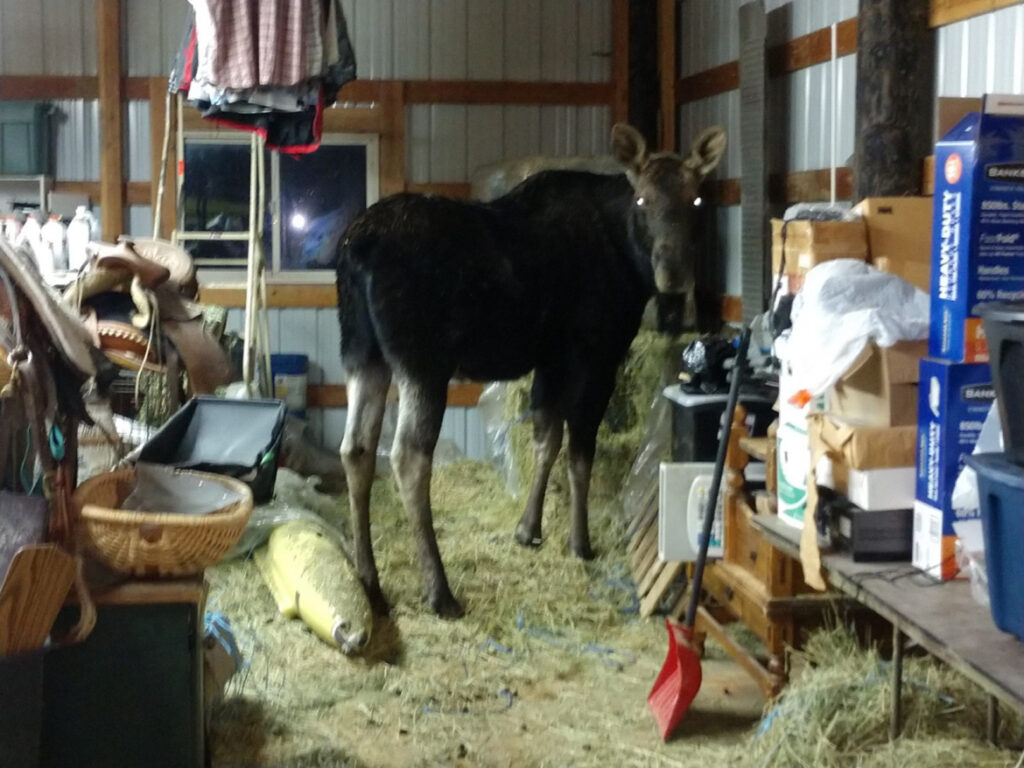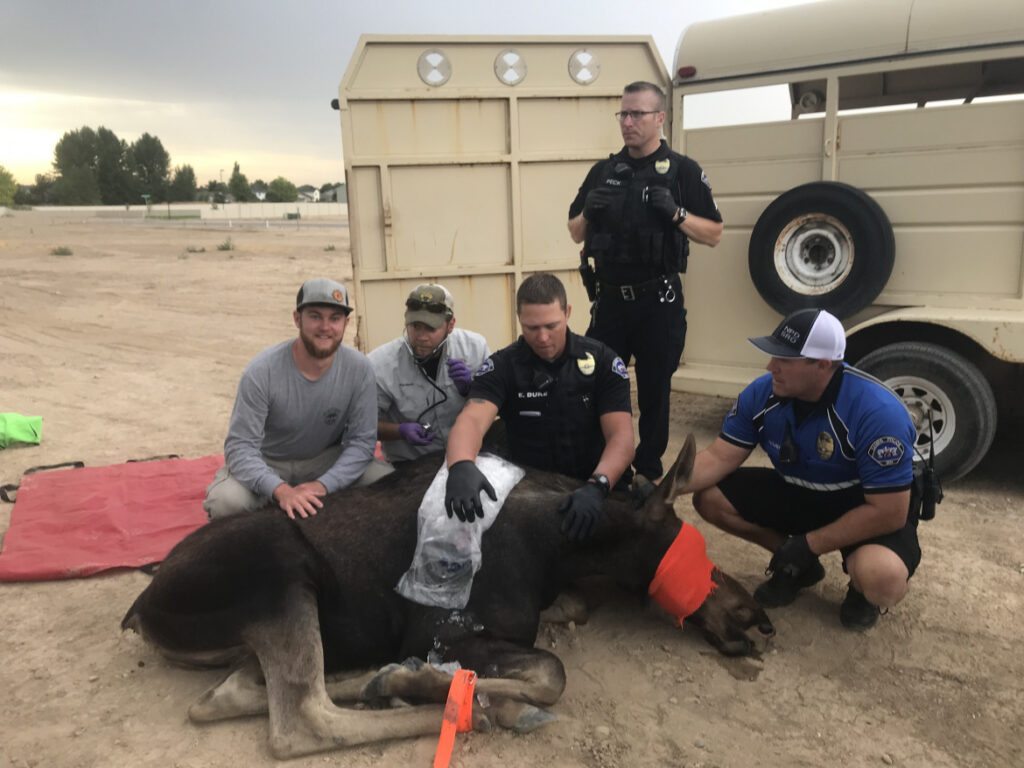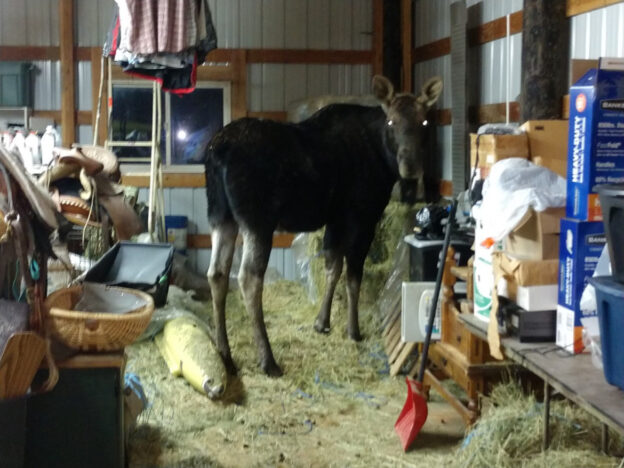By T.J. Ross, Regional Communications Manager
A man in North Idaho was recently attacked by a bull moose in his barn just outside of Coeur d’Alene
Staff with Idaho Fish and Game received a phone call from a man in North Idaho on Dec. 8 reporting that he had been attacked by a bull moose. The encounter occurred at his property just outside of Coeur d’Alene.
The man’s step-daughter went into their barn to gather hay for their horse. Upon entering the barn, she saw the moose eating hay, noticeably unafraid of her. It proceeded to charge toward her, forcing her to rush out of the barn for her own safety.

Her step-dad soon arrived on the scene, and despite multiple attempts to get the moose to leave, it remained in the barn.
As the man continued to try to get the moose out, it turned and charged toward him, ramming into the man’s chest and knocking him to the ground. While the man was on the ground, the moose attempted to trample him.
In an effort to stop the attack, the man repeatedly fired his sidearm near the moose. None of the shots were aimed at or hit the moose. After the shots were fired, the moose eventually left the barn unharmed. Thankfully the man was not seriously injured during the encounter.
Lessons learned
If you’ve spent more than a winter or two in North Idaho, news of moose roaming through town is not foreign. As recently as a month ago, a cow moose and her calf spent a few weeks roaming neighborhoods in northwest Coeur d’Alene.
During the winter months, it’s not uncommon for moose to grace town residents with their presence as they move to lower elevations to avoid deep winter snow, take advantage of milder weather and gorge on tasty treats in the form of expensive landscaping or agricultural feed.
Moose may appear aloof by nature, and to some people they come across as friendly and cute; however, don’t be fooled. Moose, like all other big game animals, are wild and highly unpredictable.
“This moose did not appear to be afraid of me at all,” said the man who was recently attacked. “I could tell it was getting agitated when it lowered its ears to the back of its head,” he said.
Ears being lowered or flattened to the head is a sign of agitation and aggression in moose and nearly all other wild animals. If you encounter a wild animal and observe this behavior, be aware and remove yourself from the situation as soon as possible.
Wildlife and enforcement staff with Fish and Game routinely encourage the public to never approach or attempt to feed or touch a wild animal.
Fish and Game staff have confirmed that residents in the area where the encounter occurred have been feeding wild game, including the moose. Feeding may start with good intentions, however, it often leads to problems.
Moose that have been fed are known to lose their fear of humans, which can create extremely dangerous situations, such as the one that happened on Dec. 8. In addition, it is good practice to keep any agricultural feed in secure areas where it cannot be accessed by big game animals.
What Fish and Game does
Fish and Game handle occurrences of moose in town on a case-by-case basis, but it’s always preferred that a moose moves out of town or a problem area on its own.
However, a moose that acts aggressively toward people may have to be relocated or killed to protect public safety. A relocation is sometimes an option, but moving a moose to new habitat during winter puts the animal at high risk of malnutrition and being eaten by predators.
In addition, relocation requires the use of powerful drugs to sedate the animal, and it poses a significant risk to both the animal and Fish and people. In some cases it is not safe to drug an animal that may, for example, run into traffic after being darted with sedatives.
 Michelle Kemner/Idaho Fish and Game
Michelle Kemner/Idaho Fish and Game
For more information or if you have questions, please contact the Panhandle Regional office.
You can also follow the Panhandle Region Facebook page to get regular news and updates

